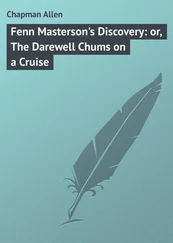George Fitzhugh - Cannibals all! or, Slaves without masters
Здесь есть возможность читать онлайн «George Fitzhugh - Cannibals all! or, Slaves without masters» — ознакомительный отрывок электронной книги совершенно бесплатно, а после прочтения отрывка купить полную версию. В некоторых случаях можно слушать аудио, скачать через торрент в формате fb2 и присутствует краткое содержание. Жанр: foreign_antique, foreign_prose, на английском языке. Описание произведения, (предисловие) а так же отзывы посетителей доступны на портале библиотеки ЛибКат.
- Название:Cannibals all! or, Slaves without masters
- Автор:
- Жанр:
- Год:неизвестен
- ISBN:нет данных
- Рейтинг книги:5 / 5. Голосов: 1
-
Избранное:Добавить в избранное
- Отзывы:
-
Ваша оценка:
- 100
- 1
- 2
- 3
- 4
- 5
Cannibals all! or, Slaves without masters: краткое содержание, описание и аннотация
Предлагаем к чтению аннотацию, описание, краткое содержание или предисловие (зависит от того, что написал сам автор книги «Cannibals all! or, Slaves without masters»). Если вы не нашли необходимую информацию о книге — напишите в комментариях, мы постараемся отыскать её.
Cannibals all! or, Slaves without masters — читать онлайн ознакомительный отрывок
Ниже представлен текст книги, разбитый по страницам. Система сохранения места последней прочитанной страницы, позволяет с удобством читать онлайн бесплатно книгу «Cannibals all! or, Slaves without masters», без необходимости каждый раз заново искать на чём Вы остановились. Поставьте закладку, и сможете в любой момент перейти на страницу, на которой закончили чтение.
Интервал:
Закладка:
When about the time of the Reformation, the study of the ancients was revived, each Gothic spire stopped half way in its course towards heaven. Mediæval art expired: – and now the world has no art, but basely copies the past.
Had Shakspeare been as learned as Ben Jonson, he would have written no better than Ben Jonson. The lofty genius of Milton would have created a glorious English epic, had he not travelled too much abroad, and dwelt too much with the past. The Paradise Lost is a splendid piece of Mosaic, made up of bits of Greek and Roman mythology, Hebrew theology, Christian morality, Mediæval romance, set in the purest Anglo-Saxon, twisted into Latin collocation. 'Tis the song of the mocking-bird.
What, then? Shall we not in boyhood sojourn and linger at Athens and at Rome, nor in manhood travel into France and Italy?
Est modus in rebus. Study the past, but be careful not to copy it, and never travel abroad until age has matured your love and respect for your native land.
CHAPTER VII.
THE WORLD IS TOO LITTLE GOVERNED
Whether with reason or with instinct blest,
All enjoy that power that suits them best;
Order is Heaven's first law, and this confessed,
Some are, and must be greater than the rest —
More rich, more wise; but who infers from hence
That such are happier, shocks all common sense.
Heaven to mankind impartial, we confess,
If all are equal in their happiness;
But mutual wants this happiness increase,
All nature's difference, keeps all nature's peace:
Condition, circumstance, is not the thing;
Bliss is the same, in subject, or in king!
Mobs, secret associations, insurance companies, and social and communistic experiments, are striking features and characteristics of our day, outside of slave society. They are all attempting to supply the defects of regular governments, which have carried the "Let alone" practice so far, that one-third of mankind are let alone to indulge in such criminal immoralities as they please, and another third to starve. Mobs ( vide California) supply the deficiencies of a defective police, and insurance companies and voluntary unions and associations afford that security and protection which government, under the lead of political economy, has ceased to render.
A lady remarked to us, a few days since, "that society was like an army, in which the inferior officers were as necessary as the commander-in-chief. Demoralization and insubordination ensue if you dispense with sergeants and corporals in an army, and the same effects result from dispensing with guardians, masters and heads of families in society." We don't know whether she included the ladies in her ideas of the heads of families; protesting against such construction of her language, we accept and thank her for her illustration. Rev'd Nehemiah Adams has a similar thought in his admirable work, "A Southside View of Slavery," which we regret is not before us. On some public occasion in Charleston, he was struck with the good order and absence of all dissipation, and very naively asked where was their mob. He was informed that "they were at work." He immediately perceived that slavery was an admirable police institution, and moralizes very wisely on the occasion. Slavery is an indispensable police institution; – especially so, to check the cruelty and tyranny of vicious and depraved husbands and parents. Husbands and parents have, in theory and practice, a power over their subjects more despotic than kings; and the ignorant and vicious exercise their power more oppressively than kings. Every man is not fit to be king, yet all must have wives and children. Put a master over them to check their power, and we need not resort to the unnatural remedies of woman's rights, limited marriages, voluntary divorces, and free love, as proposed by the abolitionists.
Mr. Carlyle says, "Among practical men the idea prevails that government can do nothing but 'keep the peace.' They say all higher tasks are unsafe for it, impossible for it, and, in fine, not necessary for it or for us. Truly, it is high time that same beautiful notion of No-Government should take itself away. The world is daily rushing towards wreck whilst it lasts. If your government is to be a constituted anarchy, what issue can it have? Our own interest in such government is, that it would be kind enough to cease and go its way before the inevitable wreck."
The reader will excuse us for so often introducing the thoughts and words of others. We do so not only for the sake of their authority, but because they express our own thoughts better than we can express them ourselves. In truth, we deal out our thoughts, facts and arguments in that irregular and desultory way in which we acquired them. We are no regular built scholar – have pursued no "royal road to mathematics," nor to anything else. We have, by observation and desultory reading, picked up our information by the wayside, and endeavored to arrange, generalize and digest it for ourselves. To learn "to forget," is almost the only thing we have labored to learn. We have been so bored through life by friends with dyspeptic memories, who never digest what they read, because they never forget it, who retain on their intellectual stomachs in gross, crude, undigested, and unassimilated form, every thing that they read, and retail and repeat it in that undigested form to every good-natured listener: we repeat, that we have been so bored by friends with good memories, that we have resolved to endeavor to express what was useful out of facts, and then to throw the facts away. A great memory is a disease of the mind, which we are surprised no medical writer has noticed. The lunatic asylum should make provision for those affected with this disease; for, though less dangerous, they are far more troublesome and annoying than any other class of lunatics. Learning, observation, reading, are only useful in the general, as they add to the growth of the mind. Undigested and unforgotten, they can no more have this effect, than undigested food on the stomach of a dyspeptic can add to his physical stature. We thought once this thing was original with us, but find that Say pursued this plan in writing his Political Economy. He first read all the books he could get hold of on this subject, and then took time to forget them, before he began to write.
We will not trouble the reader further, for the present, with our egotisms or our arguments, but refer him to the whole of Carlyle's "Latter Day Pamphlets," to prove that "the world is too little governed," and, therefore, is going to wreck. We say, to the whole of those pamphlets, for that is their one, great leading idea. We also add an extract from the speech of Ulysses, in the play of Troilus and Cressida, that beautifully illustrates and enforces our thought. We give the extract because it is a play that few read, it being, on the whole, far inferior to Shakspeare's other plays, and by few considered as wholly, if at all, his work:
"The heavens themselves, the planets and this centre,
Observe degree, priority, and place,
Insisture, course, proportion, season, form,
Office and custom, in all line of order:
And, therefore, is the glorious planet, Sol,
In nobler eminence enthron'd and spher'd
Amidst the other; whose med'cinable eye
Corrects the ill aspects of planets evil,
And posts, like the commandment of a king,
Sans check, to good and bad: But, when the planets,
In evil mixture, to disorder wander,
What plagues, and what portents? what mutiny?
What raging of the sea? shaking of earth?
Commotion in the winds? frights, changes, horrors,
Divert and crack, rend and deracinate,
The unity and married calm of states
Quite from their fixture? O, when degree is shak'd,
Which is the ladder of all high designs,
The enterprise is sick! How could communities,
Degrees in schools, and brotherhoods in cities,
Peaceful commerce from dividable shores,
The primogenitive and due of birth,
Prerogative of age, crowns, sceptres, laurels,
But by degree, stand in authentic place?
Take but degree away, untune that string,
And, hark, what discord follows! each thing meets
In mere oppugnancy: The bounded waters
Should lift their bosom's higher than the shores,
And make a sop of all this solid globe:
Strength should be lord of imbecility,
And the rude son should strike his father dead:
Force should be right; or, rather, right and wrong.
(Between whose endless jar justice resides,)
Should lose their names, and so should justice too.
Интервал:
Закладка:
Похожие книги на «Cannibals all! or, Slaves without masters»
Представляем Вашему вниманию похожие книги на «Cannibals all! or, Slaves without masters» списком для выбора. Мы отобрали схожую по названию и смыслу литературу в надежде предоставить читателям больше вариантов отыскать новые, интересные, ещё непрочитанные произведения.
Обсуждение, отзывы о книге «Cannibals all! or, Slaves without masters» и просто собственные мнения читателей. Оставьте ваши комментарии, напишите, что Вы думаете о произведении, его смысле или главных героях. Укажите что конкретно понравилось, а что нет, и почему Вы так считаете.












